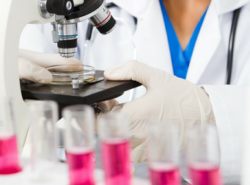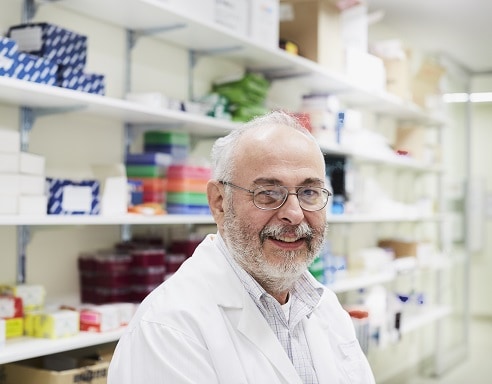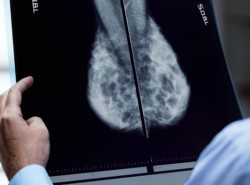
Liquid Biopsies for Monitoring and Managing Breast Cancer
Published: 10/7/19 11:23 PM

Alexander Dobrovic
- Project description: Associate Professor Dobrovic is developing liquid biopsies (blood tests) to detect traces of breast cancer in the blood. Breast cancer cells can shed DNA into the blood, which can potentially be detected and used for diagnosis.
- Why this work is needed: Current methods to diagnose and monitor breast cancer can be invasive, time-consuming, expensive, and at times, uncomfortable. Liquid biopsies targeted to detect breast cancer DNA will enable simpler, non-invasive monitoring of breast cancer patients.
- Expected Outcomes: The project holds great potential for monitoring treatment response in breast cancer patients, allowing for rapid changes in treatment strategy if required. Liquid biopsies will also have the advantage of decreased costs, lowered risks and improved comfort for breast cancer patients.
Project details
Currently, the diagnosis of breast cancer and treatment monitoring often requires invasive tissue biopsies and/or imaging techniques such as CT scans. These tests are not without risk and can be time-intensive and expensive to complete. As such, advances in the development of liquid biopsies which are based on the analysis of blood samples, hold great and exciting promise.
It has been known for over 100 years that tumours shed molecules and cells into body fluids. Very recently, techniques have been developed to allow evaluation of the original tumour by testing these molecules and cells, which can include fragments of DNA from the cancer cells. Liquid biopsies can take the form of a simple blood test, to assess the circulating tumour DNA fragments within the patient’s bloodstream.
With this in mind, A/Prof Alexander Dobrovic is developing a new set of biomarkers for the detection of breast cancer DNA in the blood. This NBCF-funded study will validate the new biomarkers and develop a test which could be used to monitor every breast cancer patient. This will be particularly useful for monitoring treatment response, allowing rapid changes in management strategy as required.
Due to the improved ease of use, decreased risks and costs, and better comfort for patients, liquid biopsies have great potential in future breast cancer management.

